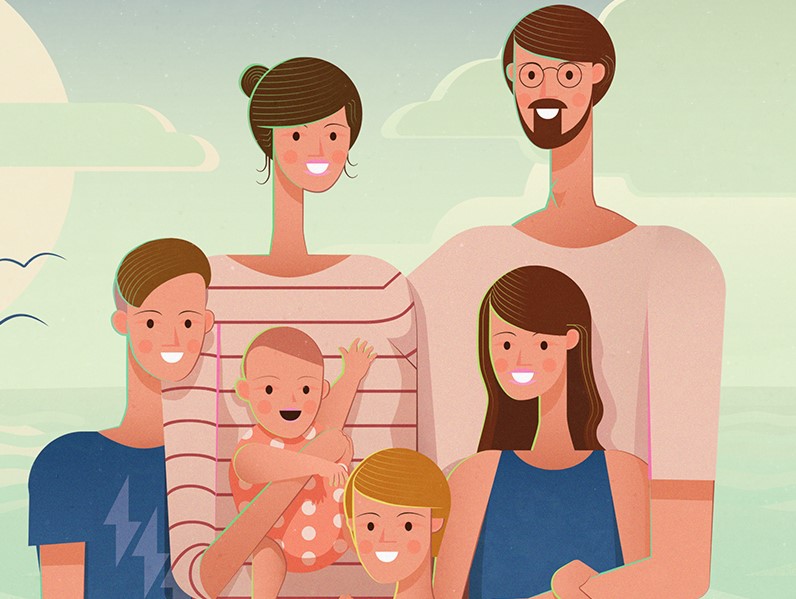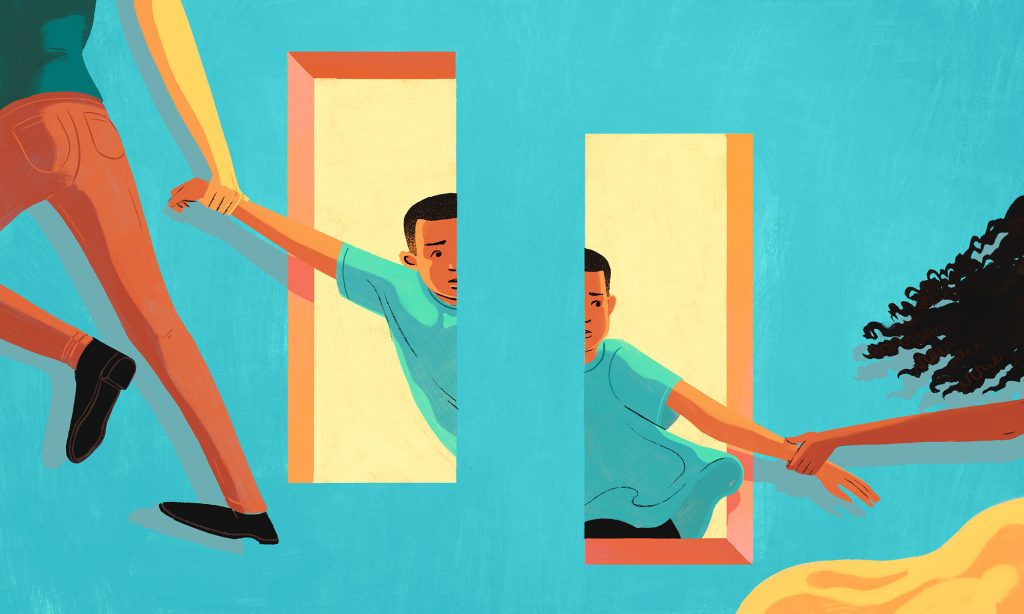
Children come in contact with the justice system in the family due to various reasons both within and outside the family. The family issues consist of divorce, adoption, minor’s custody, guardianship. The children come in contact with the administrative judicial setup for nationality issues or immigration issues. The children also come in contact with the judicial system due to the juvenile crimes that they commit. By these means, children are thrown into the world of adults.
Family justice system pertains to the matters of marriage, dowry, dissolution of marriage, guardianship, adoption, maintenance, gifts, wills, inheritance, succession, and so on. In India especially, the personal laws governing the family matters are heavily influenced by the different religions. Some of the personal laws are heavily sourced from the morals and customary practices which, in contemporary times, might even fail on the pedestal of reasoning and should, therefore, be declared obsolete.
These family laws in some way or the other clash or infringe on the rights of the children jeopardizing the balance between the two laws. It becomes important to evaluate the laws pertaining to the children, through the lenses of justice by keeping the other factors in mind. Therefore, in this article, I will elaborate upon the points on which the laws of both the family and the child justice hamper the equilibrium struck between the two and erode the fabric of the fundamental laws.
The role of family in a Child’s life
The importance of family in the lives of children is immense. A family is a place where a child feels secure. It is the first place where a child confides in. Whereas, there is a huge gap of trust when it comes to the authorities or officials like police, lawyers, etc. for not appreciating their special needs as children and for not showing them empathy. The principles guiding this interlinkage between the child and its family should also be such to further the same objective of making the child feel secure.
There are a lot of instances thought where there might be clashes between the family and child. Children are considered incapable of taking decisions by their parents but not letting the child actively participate in the process deprives them of the right to autonomy or the right to participate in the process. There is a famous saying of ‘Children being the future of tomorrow‘ so the debate that really comes out of it is that should children be considered being or becoming. The other debates revolve around the competency of the child. The third issue deals with the right if the children guided by the three Ps are the rights to participation, position, and protection. Which one should take precedence over the other opens a new plethora of thought processes.
Chronology of Separation

In the middle ages, the notion of childhood did not even exist in the first place. The children dressed in the same manner and worked side by side with their ongoing education. The segregation began with the renaissance. Children were then started to be believed as weak, dependent, and incompetent human beings. As Michael Freeman states in The Rights and Wrongs of Children, children in this era were subjected to a special sort of treatment, a sort of quarantine before they were allowed to join the adult society. The severity of this practice started in the Victorian period.
The concept of child rights began in the early 1980s. The shift was noticed in the view of the people. The children were started to be believed to be individuals with independent rights. It was in the 1970s, that the idea of children as autonomous individuals flourished. From these issues, emerge these schools of thought.
Schools of Thought
- Paternalism
In the paternalism school of thought, the child’s image is that of becoming. The children are in the process of becoming adults. The children are considered immature and incompetent to take any drastic decisions that may change their life or might have an impact on their education. In this setup, they have the right to be protected. Children need both protection from themselves and their parents. They might not be able to look at the consequences of their decisions. Moreover, they might not even have the physical competency required to undertake any task in furtherance of the decision.
- Liberation
This school of thought can also be called as anti-paternalist. Here, the image of the child is of a being child. In this, it is thought that the children are competent as other adults. Their rights deal with the right to participate.
- Welfare
In this school of thought, the child is considered as both becoming and being. The child has both the present and the future to look forward to. Generally, they will be considered incompetent but there might be certain instances where they might be considered to be competent beings. They enjoy all the three rights under this setup but the rights are secured in an order of precedence. First, we focus on their right to protection. Then we look at access to certain things like education. Then afterwards, we consider their inclusion and active participation in the process.
- Emancipation
This school of thought is similar to the welfare school of thought but the nuances are considered from different angles. Children are first seen and being and then becoming. They are taken to be competent unless proof of the contrary exists. The rights also exist in the reverse order with the emphasis on participation, then provision, and then protection. If the child has the requisite experience, then they are considered as competent.
What should be the guiding factors?
The guiding factors for child justice and family justice should be that:
- It should be accessible to them in times of need.
- It should be in consonance with the age-appropriateness.
- It should be speedy in nature.
- It should be drafted as such to meet with the needs of the children.
- It should respect the process of the due process of law.
- It should give the opportunity to the junior too to actively participate in the proceedings and understand them.
- It should give respect to their right to leading a private life.
- Even in the case of minors as well as that of major, it should respect their right of integrity and dignity.
Reformation that should take place for more defined Child Justice System
Apprising children of their rights and duties
The most basic yet the most difficult reformation comes in terms of dissemination information to the students about their rights and duties. This process should be done by a person who is in the position of trust in their eyes. School, internet, television, etc. can be sources that can be identified to do this duty.
Involvement in the process
Children are basically not involved when it comes to making decisions for them. Most of the children do not even know how the decisions that govern them are even taken. Less than half of the children are given the explanation as to why certain laws are systems related to them even exist in the first place. Not appraising the students’ leads to them not understanding the implications of it further in the future, even though those laws and decisions might be unjust in nature.
Separating a child from the parents
Children should be protected from all types of abusive traits like violence, abuse, and neglect of anyone including that of the parent. They also have the right to not being separated from the patents against their will, except when it becomes extremely necessary to do so. The best interest of the child should be a ‘primary consideration including all actions concerning children‘. The implementation of this principle though needs to be taken keeping in mind the extenuating circumstances. The child should be listened to when it comes to matters such as these by properly trained and educated staff. These suggestions and opinions of the child should also be duly analyzed and considered while deciding upon the principles and laws.
Families should also be given proper support with a view to avoiding the process of separation in the first place. Family reunification should be the goal unless there are circumstances that call for the actions to the contrary. For this to work, the child welfare systems should be both open and transparent with a view to bolstering the legitimacy of and trust in the system. Removing the child should be the last resort and should be done for the shortest possible period of time.
Conclusion
These theories help us understand why people who call themselves the ‘defender of child rights‘ take a different approach. There is evident a clash in the concept of empowerment and protection objectives. Both the actual and potential rights need to be acknowledged by the people to take the child’s rights more seriously. This would require statutory and non- statutory codifications of law to ensure that children are given the right to have their voices heard in family law proceedings.
Editor’s Note
Family makes a difference in shaping our lives and our personalities. David R. Wommack defines family as ‘The ties that bind. The cement that builds character, the strength of purpose, mutual respect, values.‘ Such is the importance of family in our lives.
As India is a secular country, it has different personal laws for different religions. When there comes clift between the parents the children go in a dilemma which causes a lot of haphazardness in their lives. As children have not much say in family matters they have to keep mum and suffer in silence. This should, however, change because it costs their future. There should be laws made that are compatible with the children of the family so that they can decide as they are the future generation and what will affect them will affect the future of the nation.